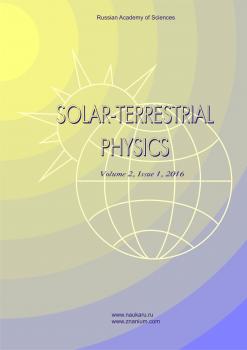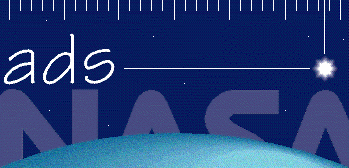Государственная главная лаборатория космической пого-ды, Академия наук КНР
Пекин, Китайская Народная Республика
Университет Китайской академии наук
Пекин, Китайская Народная Республика
Китайская Народная Республика
Пекин, Китайская Народная Республика
MingantU SpEctral Radioheliograph (MUSER) is a solar-dedicated radio heliograph, adopting aperture synthesis technique to image the Sun in the frequency range of 0.4 GHz to 15 GHz. MUSER has extremely high spatial resolution, temporal resolution, and frequency resolution beyond those of contemporary devices of the same category. For aperture synthesis, the number of antennas is limited, so sparse sampling of Fourier components is actually obtained for solar observation, which corresponds to the situation that a clean image is convolved by a dirty beam with strong sidelobe in a spatial domain. Thus, the deconvolution, such as CLEAN, is generally required for imaging the aperture synthesis to remove artifacts caused by the convolving dirty beam. The traditional Högbom CLEAN is based on the assumption that an observed object is only composed of point sources. This assumption does not hold for solar observation, where the solar disk is an extended source containing complex structures and diffuse features. In this paper, we make the first attempt to employ scale sequentially CLEAN for MUSER imaging, including Multi-Resolution CLEAN and Wavelet CLEAN. The experimental results demonstrate that the scale sequentially CLEAN, especially wavelet CLEAN, is superior to the traditional CLEAN algorithm in smaller number of iterations and improved image quality. We provide optimized wavelet parameters to further improve the performance of wavelet CLEAN.
MUSER, Multi-Resolution CLEAN, Wavelet CLEAN, solar image
1. Bethi N.K., Preto A.J., Stephany S., Faria C., Rosa R.R., Sych R., Sawant H.S. An optimized implementation of the CLEAN method for the BDA. Research Gate. 2004. URL: https://www.researchgate.net/publication/268286641.
2. Bhatnagar S., Cornwell T.J. Scale sensitive deconvolution of interferometric images. Adaptive Scale Pixel (ASP) decomposition. Astron. Astrophys. 2004, vol. 426, pp. 747-754. DOI:https://doi.org/10.1051/0004-6361:20040354.
3. Carilli C.L., Taylor G.B., Perley R.A. Synthesis imaging in radio astronomy II. A Collection of Lectures from the Sixth NRAO/NMIMT Synthesis Imaging Summer School. ASP Conf. Ser. 1999, vol. 180.
4. Cheng J., Xu L., Yu X., Chen L., Wang W., Yan Y. Auto-flag the baseline for Mingantu Spectral Radioheliograph with LSTM. IEEE Visual Communications and Image Processing (VCIP). St. Petersburg, FL, USA, 2017а. DOI:https://doi.org/10.1109/VCIP.2017.8305098.
5. Cheng J., Xu L., Lu Z., Zhao D. Application of Wavelet CLEAN for Mingantu Spectral Radioheliograph Imaging. IEEE ISPACS. Xiamen, China, 2017b. DOI:https://doi.org/10.1109/ISPACS. 2017.8266450.
6. Clark B.G. An efficient implementation of the algorithm CLEAN. Astronomy and Astrophysics. 1980, vol. 89, no. 3, p. 377. DOI:https://doi.org/10.1007/BF00167710.
7. Cornwell T.J. Multiscale CLEAN deconvolution of radio synthesis images. IEEE Journal of Selected Topics in Signal Processing. 2008, vol. 2, iss. 5, pp. 793-801. DOI: 10.1109/ JSTSP.2008.2006388.
8. Dong Z., Xu L., Cheng L.J., et al. Multi-Scale CLEAN deconvolution for solar radio imaging with Mingantu Spectral Radioheliograph (MUSER). IEEE ISPACS. Xiamen, China, 2017.
9. Grechnev V.V., Lesovoi S.V., Kochanov A.A., Uralov A.M., Altyntsev A.T., Gubin A.V., et al. Multi-instrument view on solar eruptive events observed with the Siberian Radioheliograph: From detection of small jets up to development of a shock wave and CME. J. Atmos. Solar-Terr. Phys. 2018. vol. 174, pp. 46-65. DOI:https://doi.org/10.1016/j.jastp.2018.04.014.
10. Högbom J.A. Aperture synthesis with a non-regular distribution of interferometer baselines. Astronomy and Astrophysics Supplement Series, 1974, vol. 15, p. 417.
11. Horiuchi S., Kameno S., Ohishi M. Developing a wavelet CLEAN algorithm for radio-interferometer imaging. Astronomical Data Analysis Software and Systems X, ASP Conf. Ser. 2001. vol. 238, p. 529.
12. Keel W.C. The optical continua of extragalactic radio jets. Astrophys. J. 1988, vol. 329, p. 532.
13. Kerdraon A., Delouis J.M. The Nancay Radioheliograph. Coronal Physics from Radio and Space Observations: Proc. CESRA Workshop. Nouan le Fuzelier, France, 3-7 June 1996. Springer Berlin Heidelberg. 1997, vol. 483, pp. 192-201. DOI:https://doi.org/10.1007/BFb0106458.
14. Kochanov A.A., Anfinogentov S.A., Prosovetsky D.V., Rudenko G.V., Grechnev V.V. Imaging of the solar atmosphere by the Siberian Solar Radio Telescope at 5.7 GHz with an enhanced dynamic range. Publications of the Astronomical Society of Japan. 2013, vol. 65, pp. 2226-2237. DOI:https://doi.org/10.1093/pasj/65.sp1.S19.
15. Koshiishi H. Restoration of solar images by the Steer algorithm. Astron. Astrophys. 2003, vol. 412, pp. 893-896. DOI:https://doi.org/10.1051/0004-6361:20031514.
16. Koshiishi H., Enome S., Nakajima H., Shibasaki K., Nishio M., Takano T., et al. Evaluation of the imaging performance of the Nobeyama Radioheliograph. Publications of the Astronomical Society of Japan. 1994, vol. 46, pp. L33-L36.
17. Nakajima H., Nishio M., Enome S., Shibasaki K., Takano T., Hanaoka Y., et al. New Nobeyama Radio Heliograph. J. Astrophys. Astron. Suppl. 1995, vol. 16, pp. 437.
18. Napier P.J., Thompson A.R., Ekers R.D. The Very Large Array: design and performance of a modern synthesis radio telescope. Proc. IEEE. 1983, vol. 71, pp. 1295-1320.
19. Perley R.A., Schwab F.R., Bridle A.H. Synthesis imaging in radio astronomy: a collection of lectures from the third NRAO synthesis imaging summer school. ASP Conf. Ser. 1989, vol. 6.
20. Schwab F.R. Relaxing the isoplanatism assumption in self-calibration; applications to low-frequency radio interferometry. The Astronomical Journal. 1984, vol. 89, pp 1076-1081. DOI:https://doi.org/10.1086/113605.
21. Starck J.L., Murtagh F. Image restoration with noise suppression using the wavelet transform. Astronomy and Astrophysicsю. 1994, vol. 288,pp. 342-348.
22. Starck J.L., Pantin E., Murtagh F. Deconvolution in Astronomy: A Review. Publications of the Astronomical Society of the Pacific. 2002, vol. 114, pp. 1051-1069. DOI:https://doi.org/10.1086/342606.
23. Steer D.G., Dewdney P.E., Ito M.R. Enhancements to the deconvolution algorithm CLEAN. Astronomy and Astrophysics. 1984, vol. 137, pp. 159-165.
24. Torrence C., Compo G.P. A practical guide to wavelet analysis. Bulletin of the American Meteorological Society. 1998, vol. 79, iss. 1, pp. 61-78. DOI:https://doi.org/10.1175/1520-0477(1998)079%3C0061:APGTWA%3E2.0.CO;2.
25. Wakker B.P., Schwarz U.J. The Multi-Resolution CLEAN and its application to the short-spacing problem in interferometry. Astron. Astrophys. 1988, vol. 200, no. 1-2, pp. 312-322.
26. Yan Y.H., Zhang J., Wang W., Liu F., Chen Z., Ji G. The Chinese Spectral Radioheliograph-CSRH. Earth, Moon, and Planets, China, 2009, vol. 104, iss. 1-4, pp. 97-100. DOI:https://doi.org/10.1007/s11038-008-9254-y.

















